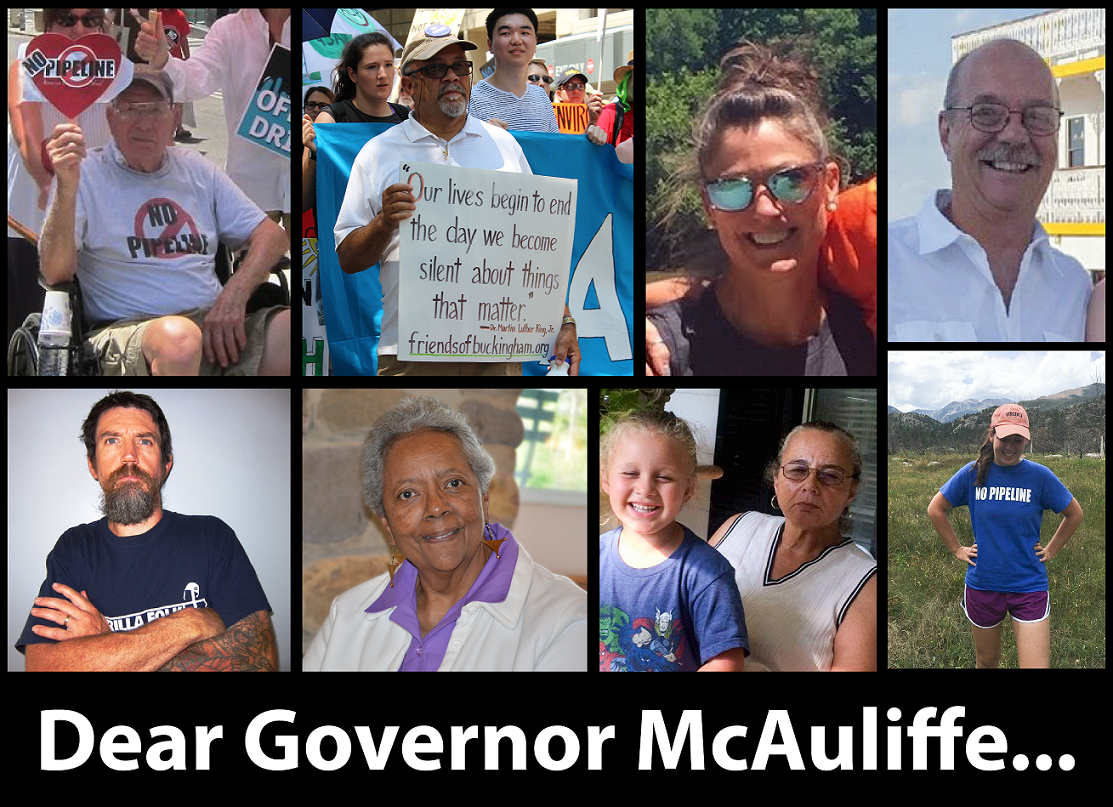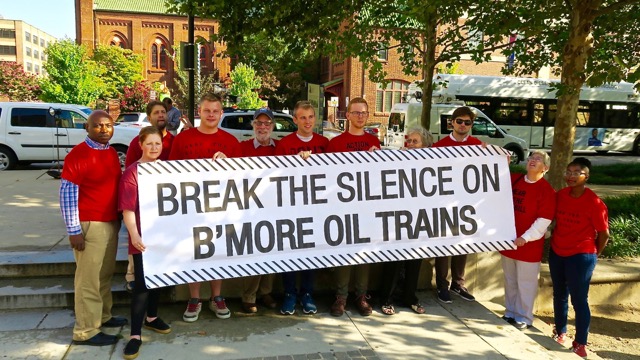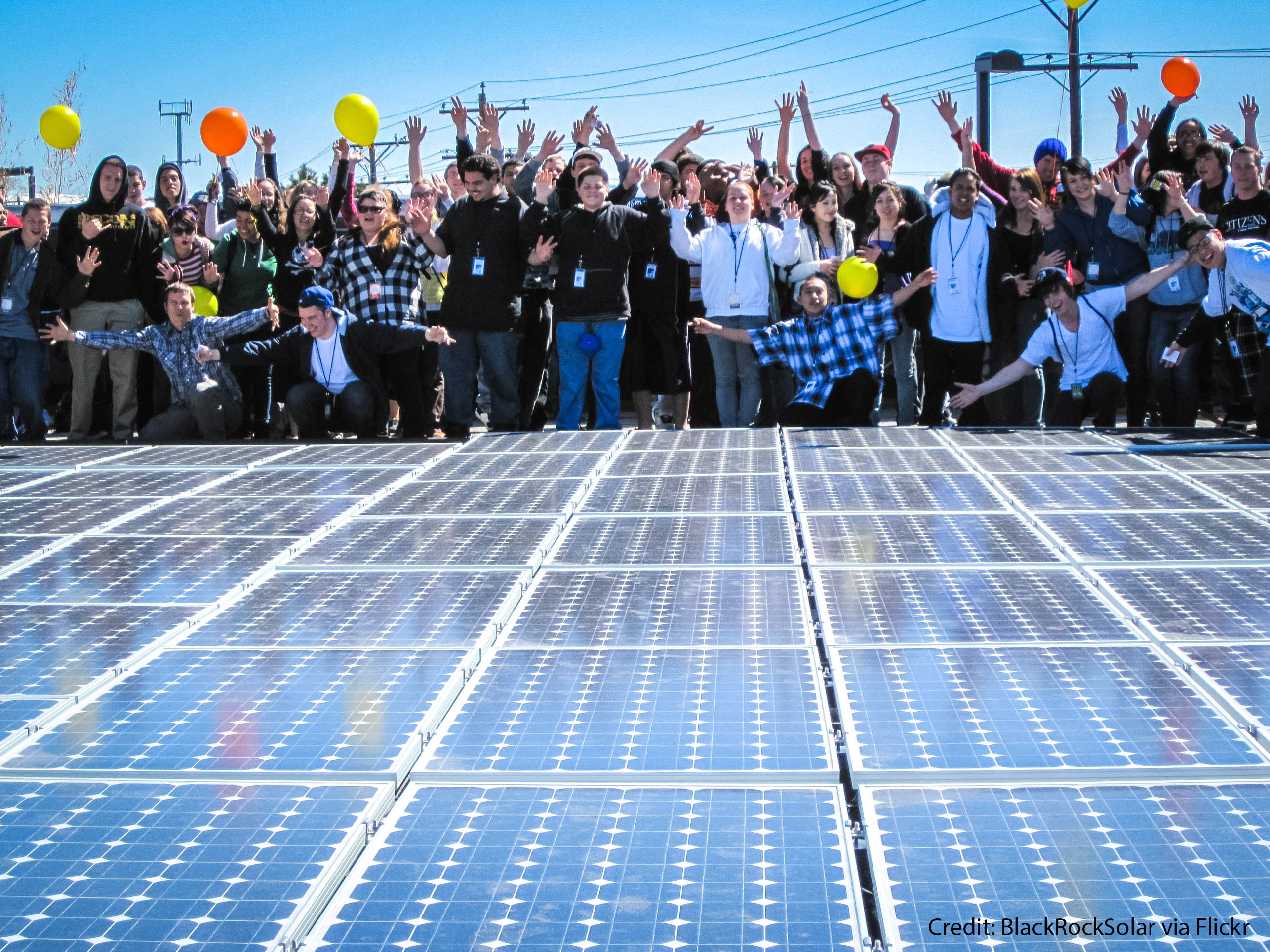 Kim Williams, Norfolk, Va.
Kim Williams, Norfolk, Va.
The urgency of the times leads me to participate in civil disobedience at the governor’s mansion. The temperatures are rising; the ice sheets of Greenland and the polar ice caps are melting at alarming rates. The coastal city in which I live and raise my children increasingly floods even on sunny days. It is time to wake up! Building new gas pipelines will only add to the release of carbon into the atmosphere and to the speed and intensity of these disruptions in life happening now in my home city and all over the planet. Governor McAuliffe, we need courageous leadership! Business cannot continue as usual with fossil fuels!
 Rick Shingles, Newport, Va.
Rick Shingles, Newport, Va.
Virginians have been disenfranchised from decisions determining our environment, health and welfare by state monopolies, mainly Dominion, that own Virginia’s energy policies. Our elected officials regularly do the bidding of these monopolies, confusing shareholders’ investments with the public interest. We, the public, have come to the capitol to reclaim our government, to demand that the governor and legislators promote what’s best for the Commonwealth. We are here to tell them: “Do the right thing! We have your backs.”
 Dean Naujoks, Potomac Riverkeeper
Dean Naujoks, Potomac Riverkeeper
I’m getting arrested today because the Virginia Department of Environmental Quality, under Governor McAuliffe, has failed to protect public health when it comes to the proper disposal of millions of tons of toxic coal ash in the state. There are drinking wells, next to coal ash sites in Virginia right now, that are confirmed to be contaminated and yet the state still won’t tell citizens whether the wells are safe to drink or not. In the meantime, the Governor has the full power, on his own, to order DEQ to follow the much stronger and safer coal ash standards of North and South Carolina and Georgia. He should do that today.
 Russell Chisholm, Newport, Va. (in Giles County)
Russell Chisholm, Newport, Va. (in Giles County)
Climate issues are veterans’ issues. I am a landowner in Newport, Virginia, and a US Army veteran who served in Desert Storm with the 24th Infantry Division. My home is in Giles County, Virginia – walking distance from the Appalachian Trail and just a few miles from the proposed Mountain Valley Pipeline for fracked gas. My wife, Anna, also an Army veteran, and I draw our drinking water from a spring that, because of the special “karst” geological features of this part of Appalachia, could be disrupted or drained completely by the sort of trenching and pipe-laying required by the Mountain Valley Pipeline. And Governor McAuliffe supports the MVP.
 Quan Baker, Norfolk, Va.
Quan Baker, Norfolk, Va.
I don’t believe the Governor, or any of our other state legislators, are taking the impacts of climate change seriously. As a coastal state, we need to be on top of fossil fuel divestment. If I have to get arrested to make that statement clear then, so be it.
 Katharine Layton, Fort Valley, Va.
Katharine Layton, Fort Valley, Va.
I want Governor McAuliffe to honor his campaign promises to fast-forward Virginia in clean, renewable energy development. I want the Governor to block construction of natural gas pipelines through Virginia to protect water supplies, protect forests and communities, and reduce greenhouse gases. I object to the misuse of eminent domain laws to take private property from Virginians for the building of pipelines that are primarily for gas export and profits for the gas company, not the well-being of Virginia residents.
 Deborah Kushner, Nelson County, Va.
Deborah Kushner, Nelson County, Va.
I live in Nelson County, Virginia – so rural there is only one stoplight in the whole county. It’s a stunningly beautiful county bordering the Blue Ridge mountains and full of lovely waterways, forests and wildlife.
The Atlantic Coast Pipeline’s route comes within 5 miles of my home. I’m “lucky” – I know people whose land is in the direct path of this pipeline. Already, property values have plummeted. People are terrified and angry. Land that’s been in families for generations could be lost. Compressor stations are planned that will run 24/7, pumping toxic fumes and flames into the air and as loud as jet engines running constantly. The scenarios are nightmarish – explosions, leaks, drilling through unstable rock and under pristine streams. This in an exquisite area where I delight in hearing whipporwills outside my window, and witness migrating hawks by the thousands.
I’m proud of the resistance that’s sprung up all along the way to fight rampant plundering of our land to extract fossil fuel instead of investing in other, less destructive forms of energy that could ultimately save us from the horrors of impending climate change.
I am deeply concerned about our planet’s survival. We cannot continue to plunder our natural resources when viable alternatives exist and others can be developed. For the sake of every person alive and all the generations to come, we must stop the exploitation and devastation of our land and water and treasure it for the life-giving treasures they are.
We must stop our dependence of fossil fuels that are heating our atmosphere, destroying mountains, raising sea levels and clogging and polluting waterways. If it takes marching, picketing and getting arrested, so be it. We are fighting for our survival.
 Robert Dilday, Richmond, Va.
Robert Dilday, Richmond, Va.
Protecting God’s creation and the people God created is foundational for those of us whose faith motivates us to work for climate justice. Particularly when degradation of creation undermines the lives of people in marginalized communities, we’re called to give voice to their concerns and stand in solidarity with them. Civil disobedience is a well established practice in my faith tradition to accomplish that.
 Pastor Paul Wilson, Buckingham County, Va.
Pastor Paul Wilson, Buckingham County, Va.
The Governor has not listened to us at all. This is something that the Governor can stop. He’s passing the buck. We refuse to be sacrificial lambs in our community for the sake of money for private industry. We believe there is not a real need for another gas line. There is not a need for a compressor station. We are in ground zero if something catastrophic were to happen. My church community is it.
Brad Pearce, Richmond, Va.
The science is in. We have to aggressively cut CO2 emissions. But policy in Virginia right now rejects that – from supporting offshore oil to fracking to pipelines. Civil disobedience is necessary not only to challenge what is happening, but to raise awareness of what is possible.
 Marjorie Wells, Va.
Marjorie Wells, Va.
I’m 83 years old. I’m here because I grew up in a world that was clean – you had clear air you could breathe and clean water you could swim in. That’s all changing. And if we don’t get serious about this we’re not going to have a planet to live on.
 April Moore, Shenandoah County, Va.
April Moore, Shenandoah County, Va.
Humanity has never faced a challenge as major as climate change. This is an emergency that must be dealt with as such. Gov. McAuliffe and other elected officials must respond by doing everything in their power to make the shift, as rapidly as possible, from climate-warming fossil fuels to clean, jobs-producing, renewable energy like solar and wind.
Civil disobedience is a time-honored practice. We citizens are so committed to getting our governor to take real action on climate that we are willing to risk arrest to underscore the importance of our cause. We are working to get the attention of Gov. McAuliffe and the citizens of Virginia.
 Herb Fitzell, Richmond, Va.
Herb Fitzell, Richmond, Va.
President Grant said of the Mexican-American war, “I do not think there was ever a more wicked war…only I had not moral courage enough to resign.” But Thoreau did have courage, and he went to jail as an act of resistance to a governmental machine which had lost its moral compass. Thus began the great American tradition of civil disobedience. Our government now marches towards the destruction of our climate, and what could be more wicked than destroying God’s entire creation in exchange for silver? I stand with Native Americans courageously resisting pipelines in Dakota, and with citizens throughout the nation who demand would-be leaders face reality rather than run from it. I happily join our great American tradition of resistance. While some bury their heads in the sand, many of us are looking at the stars.
 Lee Williams, Richmond, Va.
Lee Williams, Richmond, Va.
I’m here today to change the political will of our leaders. We have a global energy model that values fossil fuels over clean air and water; corporations over people. The collusion between Corporations and Government has destroyed my ability to have representation. This is the only avenue left open for me to be heard.
 Chuck Epes, Richmond, Va.
Chuck Epes, Richmond, Va.
The rivers and other natural resources of Virginia belong to the public. State government has a constitutional duty to protect and preserve those resources for the benefit of all Virginia citizens. Gov. McAuliffe and the Va. DEQ are violating that public trust by allowing Dominion Power, a private for-profit corporation, to further pollute our waterways with coal ash poisons and other fossil fuel wastes, threatening public health and the environment. It’s time state government do its job and say no to corporate polluters. It’s time for clean, sustainable energy. It’s time to take a stand.
 John Mayeux, Luray VA
John Mayeux, Luray VA
John Mayeux is a 66 year old green home remodeler, and owner of Why Build Green, in Luray, VA. He taught green building to vocational technical students in the Shenandoah Valley for several years. John was active in opposing the Keystone XL Pipeline.
John is in Richmond to strongly encourage Governor McAuliffe to oppose the Dominion gas pipeline through Virginia, stop coal ash dumping in our rivers and work to reduce fossil fuel burning which would reduce global warming and protect our fragile coastlines from rising ocean levels and storm surge damage.
 Jennifer Alves, Leesburg, Va.
Jennifer Alves, Leesburg, Va.
My name is Jennifer Alves, and I am a LORAX. I love Mother Earth with all my heart. All my life I have been working towards the Revolution now taking place and so many people are embracing. I began counting my blessings the day I was born. Twice as a child I had brain cancer. And then again just after my 30th birthday. The childhood tumor and treatments caused complications in my brain, a visual impairment and a short term memory glitch. Despite the number of difficulties I faced from a very young age, I imagined with faith and high hopes of what I would be when I grew up. Through the hardships of public school, I was fortunate to have my family, teachers, and special education personal who saw in me great potential and the determination to succeed.
 Maria Bergheim, Loudoun County, VA
Maria Bergheim, Loudoun County, VA
I am tired of empty promises from our elected officials. We elect them into office to protect us not to harm us but with the threat of climate change at a real tipping point that has reached 400 CO2 it’s a disgrace they still won’t work for us but rather for Dominion. This has to change now …not tomorrow but today!
 David Copper, Staunton Va.
David Copper, Staunton Va.
It’s time. It’s got to be done.
 Izzy Pezzulo, Richmond, Va.
Izzy Pezzulo, Richmond, Va.
Because I care about the communities in Virginia impacted by fossil fuel infrastructure and the lives impacted.
 Jim Barton, Va.
Jim Barton, Va.
I want to protect the environment. It’s my first time getting arrested, but now’s the time.
 Terry Ellen, Pikesville, Md.
Terry Ellen, Pikesville, Md.
The climate crisis is the greatest moral issue we face together at this time. Nothing else touches it in terms of its consequences for us, future generations, and all the species. Our generation will be judged by all future ones on how we react. So it is imperative that our elected leaders respond to it as the crisis that it is. Governor McAuliffe has not done so, despite campaign promises, in the three areas highlighted in these protests. And so it is imperative that citizens demand he do so, even risking peaceful arrest to highlight the moral importance of this moment. As a seventy-one year old Unitarian Universalist Minister, I feel it is also important that we elders do our part. Younger generations are counting on us.




















 Wrapping up the week of action, activists participated in a Banner Drop at Camden Yards in Downton Baltimore in protest of oil trains that run alongside the stadium and threaten this beloved Baltimore institution.
Wrapping up the week of action, activists participated in a Banner Drop at Camden Yards in Downton Baltimore in protest of oil trains that run alongside the stadium and threaten this beloved Baltimore institution.